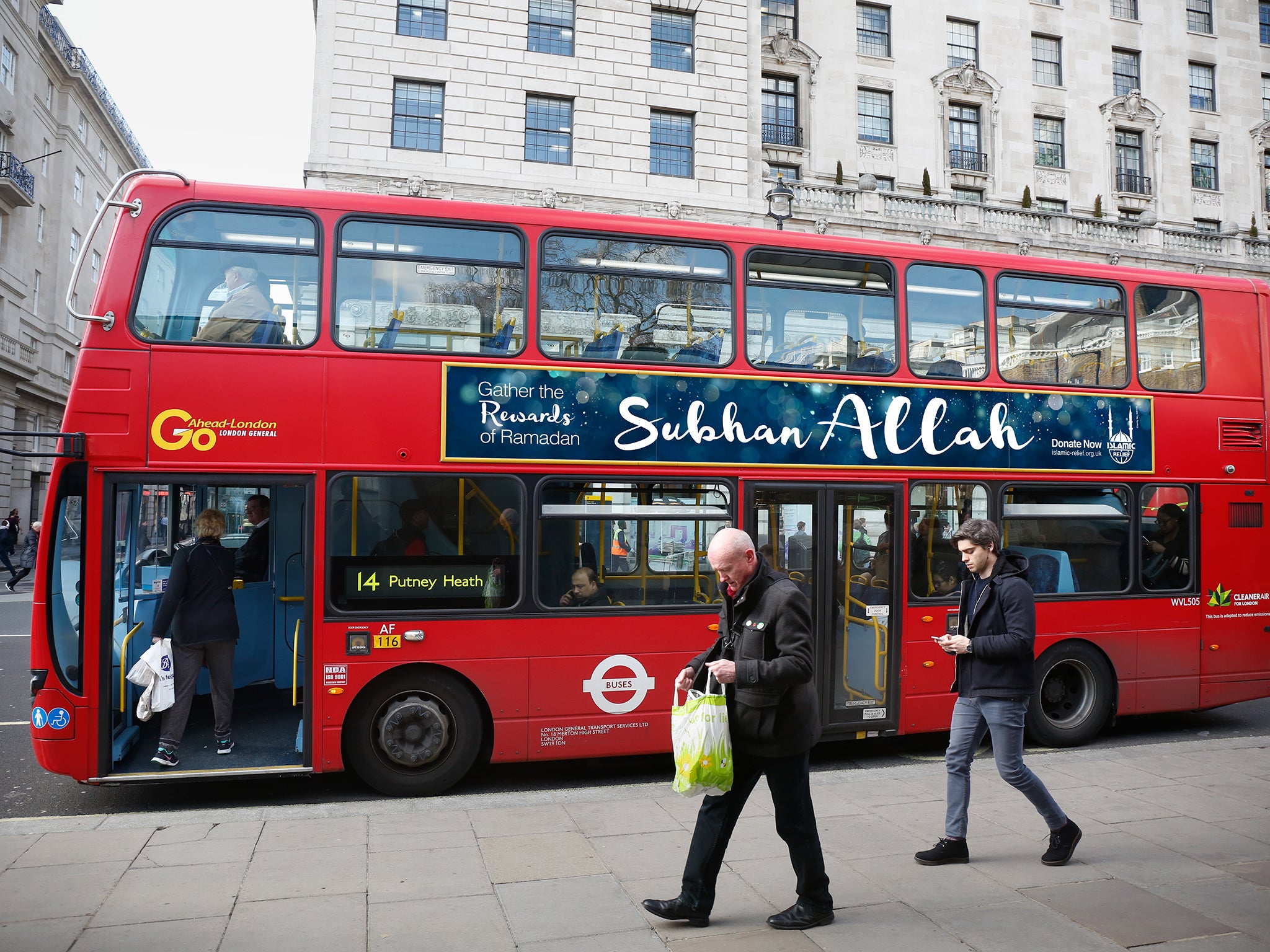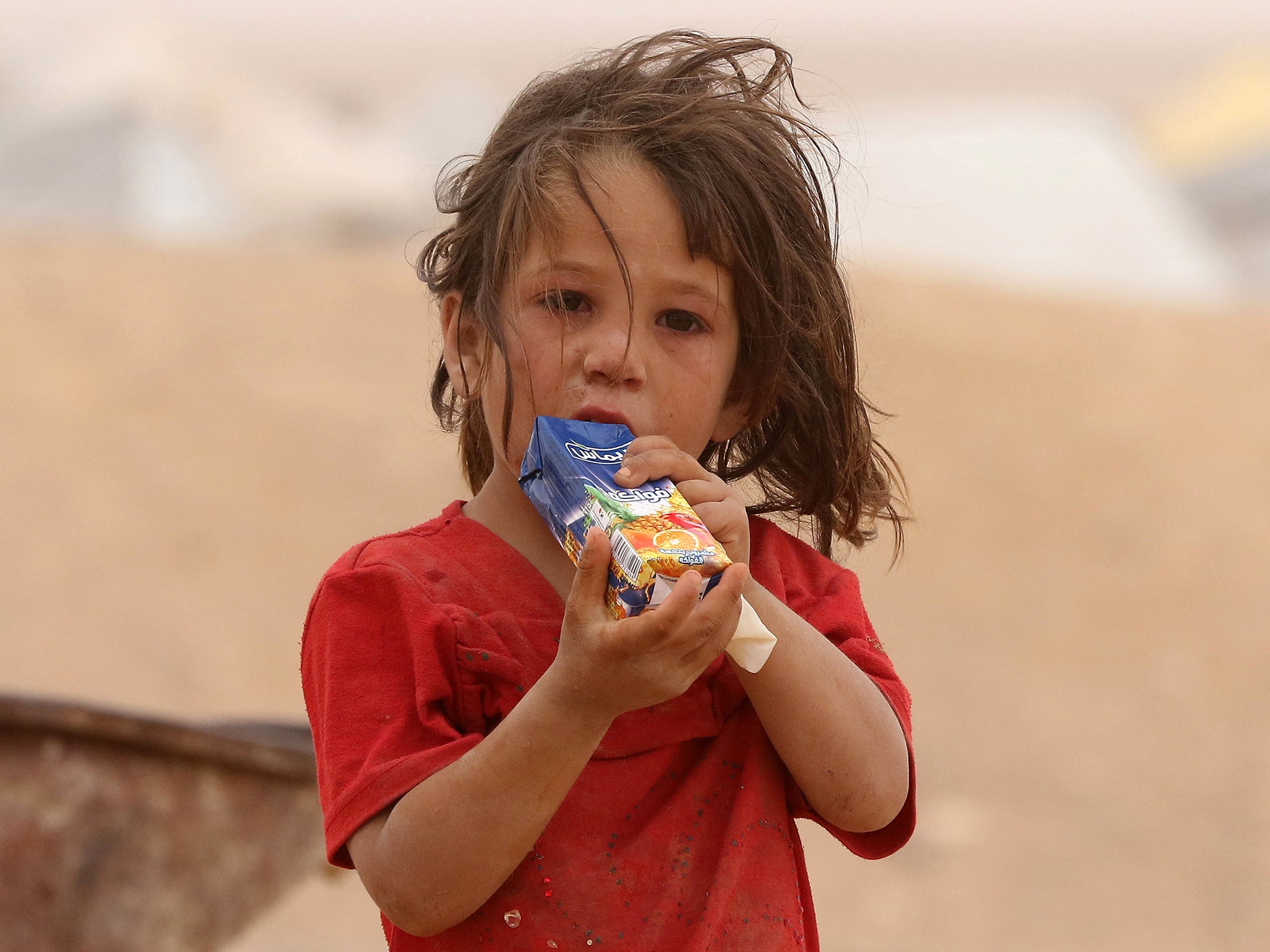Muslim charity to put 'Allah is great' posters on buses to portray Islam in a positive light
Islamic Relief hopes the campaign across five major cities will help to 'change the negative climate' around the religion

Your support helps us to tell the story
From reproductive rights to climate change to Big Tech, The Independent is on the ground when the story is developing. Whether it's investigating the financials of Elon Musk's pro-Trump PAC or producing our latest documentary, 'The A Word', which shines a light on the American women fighting for reproductive rights, we know how important it is to parse out the facts from the messaging.
At such a critical moment in US history, we need reporters on the ground. Your donation allows us to keep sending journalists to speak to both sides of the story.
The Independent is trusted by Americans across the entire political spectrum. And unlike many other quality news outlets, we choose not to lock Americans out of our reporting and analysis with paywalls. We believe quality journalism should be available to everyone, paid for by those who can afford it.
Your support makes all the difference.Hundreds of British buses will carry adverts praising Allah as part of a campaign launched by the country’s biggest Muslim charity to help victims of Syria’s civil war.
Islamic Relief hopes the posters, which bear the words “Subhan Allah”, meaning “Glory be to God” in Arabic, will portray Islam and international aid in a positive light.
Buses will carry the advertisements in London, Birmingham, Manchester, Leicester and Bradford.
These cities have large Muslim populations and the charity hopes it will encourage people to donate generously ahead of the start of Ramadan on 7 June.
According to Islamic law, Muslims are supposed to donate 2.5 per cent of their income to the poor and needy.
Known as Zakat, the pratice is regarded as one of the “five pillars of Islam”.
Many people choose Ramadan to donate their Zakat, as the month of fasting is regarded as a month of blessings.
Muslims believe the rewards for all good deeds are greater during Ramadan than during the rest of the year, according to Muslim Aid.

The charity hopes the campaign will help young Muslims channel anger about the war in Syria and discrimination at home into humanitarian work, thereby preventing them from becoming involved with extremist groups.
Imran Madden, the UK director of Islamic Relief, said: “In a sense this could be called a climate change campaign because we want to change the negative climate around international aid and around the Muslim community in this country.
"International aid has helped halve the number of people living in extreme poverty in the past 15 years, and British Muslims are an incredibly generous community who give over £100 million to international aid charities in Ramadan.”
The new campaign will appear on buses from 23 May on 640 buses around the country.
The adverts will have a special resonance in London as the city elected its first Muslim mayor, Sadiq Khan, on Thursday - despite a Conservative campaign which repeatedly accused him of having connections to extremists.
An estimated three million Muslims are believed to live in London - around 50 per cent of British Muslim population.
Transport for London (TfL), which regulates the advertisements appearing on the city’s buses, has a clause banning campaigns linked to a “political party or campaign” but does not prevent religious advertising.
It can ban ads if it believes the campaign is likely “to cause widespread or serious offence”.
In 2012, a Christian charity had its adverts cancelled by then Mayor Boris Johnson after it was accused of claiming to “cure” gay people.
In 2009, the British Humanist Association drew complaints after it ran a campaign saying “There’s probably no God. Now stop worrying and enjoy your life”.
In response, Christian groups ran a counter-campaign saying there “definitely is a God” a month later.
Join our commenting forum
Join thought-provoking conversations, follow other Independent readers and see their replies
Comments